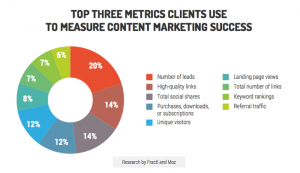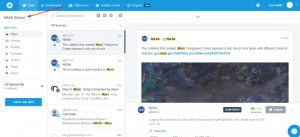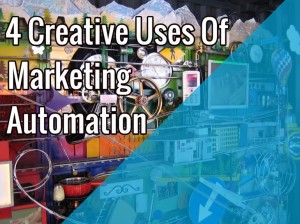
It was in 2007 that I set a goal to become a customer experience consultant and keynote speaker. I recognized that the companies we admire have made a premeditated effort to put their customers at the core of their business. I also realized that companies who continuously improve their customer experience can grow to become billion dollar companies.
I knew that I needed to first cut my teeth before I became a consultant and keynote speaker. I recognized that it wasn’t enough to learn from just one company and that I needed to learn from those that had come before me.
I can say, without exaggeration, I have devoted 1000′s of hours studying customer experience management and how it will grow a business. Being a capitalist, I focus my attention on customer experience because of revenue and profits. As I say to my clients,
“I don’t help companies deliver amazing service because it will put a smile on your customers face. I do it because it makes money. Lots of it!”
The lessons I have learned from the following entrepreneurs have helped me go from earning $ 10.00/hour working in a call centre to charging up to $ 20,000 per speaking engagement and consult for several recognizable and admired companies.
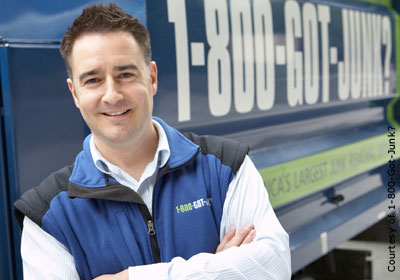
“It’s all about the people.”
As you may be familiar, I got my start with a company called 1-800-GOT-JUNK?. The Vancouver-based franchisor is a case study for the Net Promoter Score, company culture and their employee development.
If you were to visit “The Junktion”, the appropriately named head quarters of 1-800-GOT-JUNK?, you will see a decal that reads “It’s All About the People” with Brian’s name written underneath.
During my time at 1-800-GOT-JUNK? I learned that if you want to improve your customer experience you shouldn’t start with the customer. You must first enhance your employee experience.
I’m frequently challenged on this by colleagues. You see, you can build all the systems in the world or buy the latest software to improve your customer experience but if you don’t have the right team pushing your efforts forward you will never maximize your results.
If you are going to reserve resources in 2015 to improve your customer experience look at your employee engagement first. How are you hiring? What is your interview process like? How are you onboarding your newest employees? What is your training program like? Does your recognition and incentive programs motivate your team?
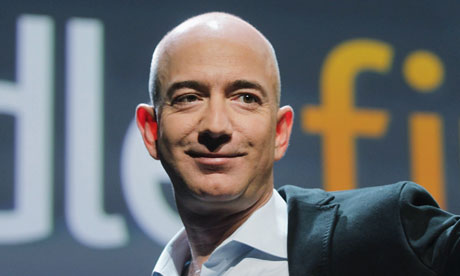
“Earth’s most customer-centric company.”
I spend a dozen hours a week studying online retailers and user experience. When Jeff Bezos started Amazon in Seattle, Washington one might think that his motivation would be to become the world’s largest online retailer. However, if you have studied the operations of Amazon, their slogan is to be “earth’s most customer-centric company.” This mantra led the company to organically become one of the largest retailers in the world. Amazon is a world class example of putting their customers before any self-serving initiatives.
What Jeff Bezos taught me was that you shouldn’t obsess over competitors. Instead, you must obsess over your customers and the experience they have with you each and every time. It’s not enough to simply create a slogan and hope that it resonates with your employees and customers.
Unfortunately, “customer-centric” has become a buzzword and many organizations are putting lip stick on a pig and claiming to be customer focused.
Howard Schultz (Starbucks, CEO)
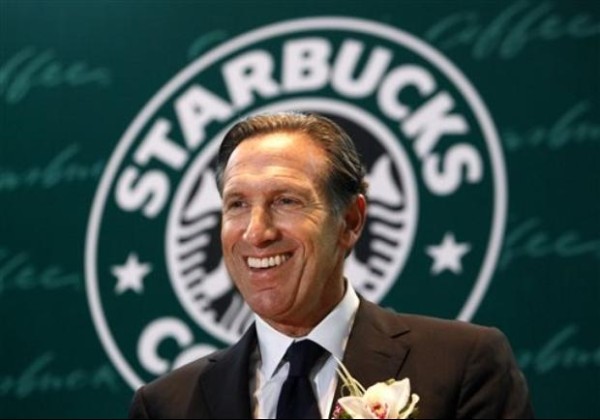
“Compromise anything but your core values.”
Does your company have core values? I mean, ones that actually represent your brand.
If you simply created them to be like Starbucks then you must reevaluate them. Core values are in place to represent what your brand means to you, your employees, your customers and vendors. These guiding principles help your customers feel emotions that your logo can’t produce.
One of Starbucks mission statement reads,
When we are fully engaged, we connect with, laugh with, and uplift the lives of our customers – even if just for a few moments. Sure, it starts with the promise of a perfectly made beverage, but our work goes far beyond that. It’s really about human connection.
What I learned from Howard Schultz is that you must use your core principles as the foundation of your business. These statements remind your employees why they are dedicating part of their lives to your company.
Even to this day, I still spend 4 hours per day studying my craft. When I find that I haven’t reserved time for my personal education I begin to feel anxious. I feel this anxiety because I believe that if I stop learning then I’m one step closer to becoming irrelevant and not useful to my community of email subscribers, followers and clients.
What customer experience leaders have you learned from? What did they teach you?
Business Articles | Business 2 Community
(511)



